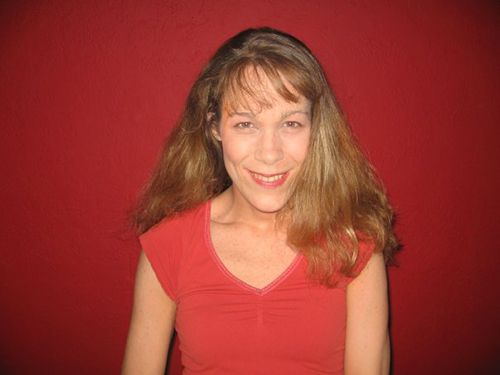Julie Petty of Fayetteville was surprised but very happy to be recognized recently for her work to promote social justice. Ark-AHEAD, the state affiliate of the Association on Higher Education and Disability, honored the University of Arkansas employee with its annual Social Justice Award.
The award has special meaning for Petty because social justice has been her passion her entire life.
"I feel, no matter what your disability, we should all have equality," Petty said. "We should all be treated equally. I feel very thankful to Ark-AHEAD for this recognition."
Ark-AHEAD is an organization for professionals working with people with disabilities in postsecondary education settings in Arkansas. Petty is a project trainer for Partners for Inclusive Communities, which is Arkansas' University Center on Disabilities and a member of the Association of University Centers on Disabilities. Partners is administratively located within the College of Education and Health Professions at the U of A.
The Social Justice Award recognizes a person, agency or association that works to promote social justice on a daily basis for people with disabilities in their communities. Petty, who has cerebral palsy, experienced bullying as a child and struggled to succeed in college, before she transferred from a private school to the University of Arkansas, where she found the support she needed, she said.
Petty first put her passion to work with an organization called Arkansas People First, which focuses on helping people with disabilities advocate for themselves. She served as state coordinator of the organization. It encourages people with disabilities to take greater control of their lives and to speak up for equal treatment and rights.
"Self-advocacy is my mission and I carry it over in the work I do at Partners," she said. "It's important that we get rid of stereotypes and the mindset that people with disabilities can't do what everybody else does. We have the right to be included in all aspects of life, including higher education."
Petty earned a bachelor's degree in journalism from the U of A in 2004. She said she was able to accomplish a lot in her time at the U of A because the university, like many other public institutions, offers support services to students with disabilities.
"I was able to thrive at the University of Arkansas because I had that support," she said. "Sometimes people with disabilities may be scared and ashamed to ask for help. One thing I really believe is we all need support, no matter if you have a disability or not. It's OK to ask for support."
For her position with Partners, Petty travels around the state educating those with intellectual disabilities on health and safety and educating the general public about disability and inclusion. In 2011, she was appointed to the President's Committee for People with Intellectual Disabilities and now serves as chair of the committee. She has also served as national chairperson of Self Advocates Becoming Empowered and as a policy analyst for the Human Service Research Institute.
She has found that older people sometimes need more education about disabilities than younger people who grew up since the Americans With Disabilities Act was passed in 1990.
"They grew up with laws to help them and protect them," Petty said. "When I go out and talk to people 35 and older who grew up in an environment where people with disabilities were segregated from the rest of the population, they are now finding their voices. I have worked with people who are 40 years old and now realize they are able to choose where to go for lunch. I want to help them open a new world of possibilities, help them understand their rights."
While physical access has improved and barriers have been removed so more people with disabilities can work, Petty said there is still a long way to go.
"People with disabilities can have homes," she said. "They can live, work and play in the community, but I still feel like we have a long way to go when it comes to accepting others, not being afraid of people with disabilities. People are afraid of what they don't know. I don't think I'm very scary but I guess I can be a little scary before I've had my coffee in the morning."
Petty and her husband, Brian, have two sons, 12 and 10. She is hopeful that, when her sons are older, people will perceive disability as a natural state of being.
"We still need to work on perceptions," she said. "I think that time will come."
Contacts
Heidi Wells, director of communications
College of Education and Health Professions
479-575-3138,
